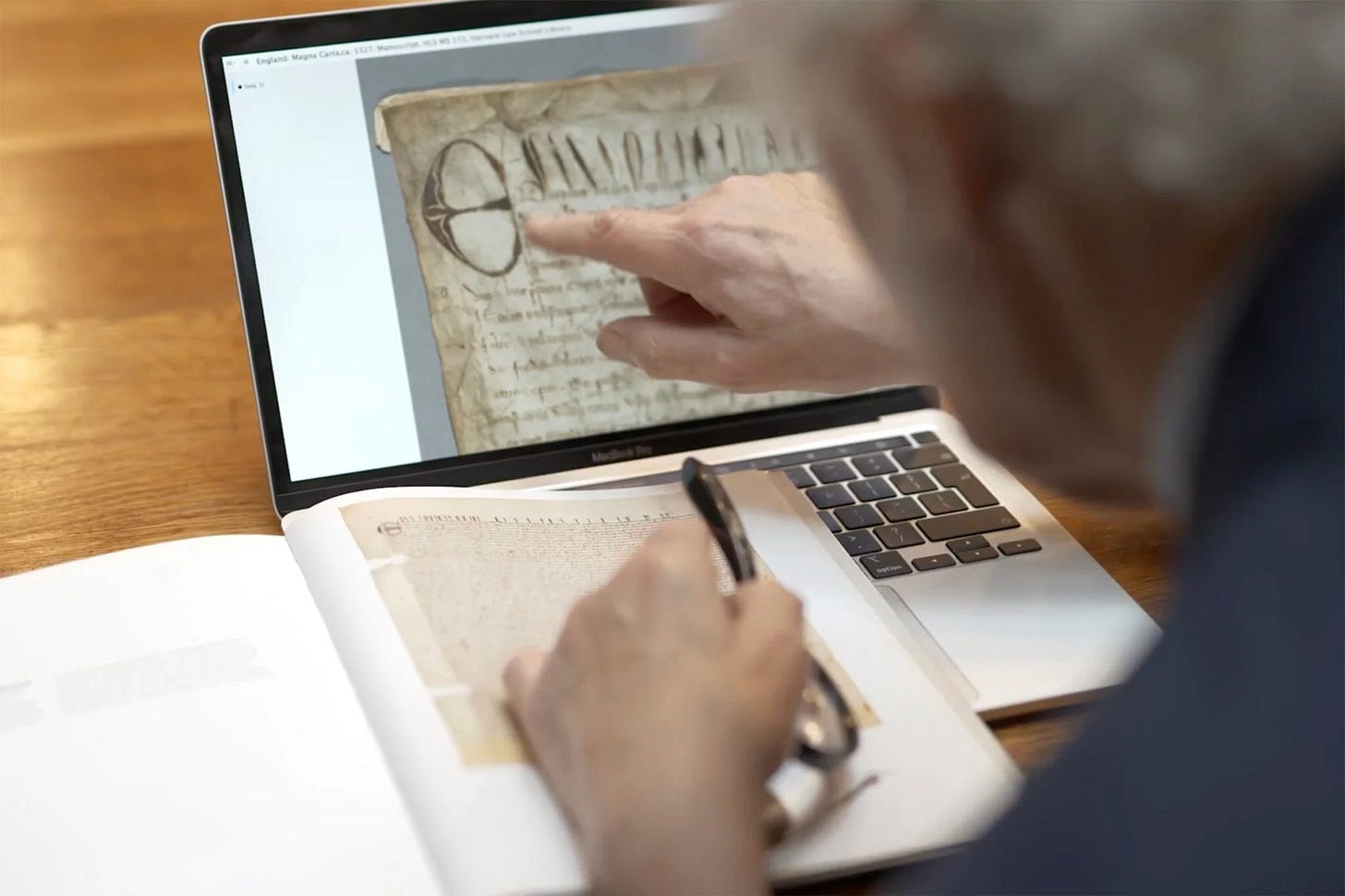Almost exactly 810 years ago (June 15, 1215), England’s King John singed a document called the Magna Carta Libertatum ("Great Charter of Freedoms"), at Runnymede. The document was intended to establish the rights and (much more importantly) the limitations of the crown during a period of feuding between the king and a group of rebel barons. It has since formed the basis for limiting government power, and served as the inspiration for (among others) the United States Constitution. While historians debate the actual impact of the Magna Carta, it has come to symbolize the legitimacy of the protection of civil liberties in democratic republics.
Now, it turns out that Harvard University owns a rare original copy of the Magna Carta—re-issued by King Charles I in 1300. Purchased in 1946, the university thought it was a mere copy. But, two British scholars pressured the school to do special imaging to determine its authenticity. Sure enough, it was real. So, the $27.50 that Harvard paid for the document 79 years ago is likely to undergo some serious price inflation.
Of course, the real irony is that the discovery comes at a time when Harvard is battling the Trump Administration over whether it can withhold about $2.6 billion in federal funding from the school. It’s amazing how history can exert its relevance even after 810 years. Perhaps George Bernard Shaw was right: “We learn from history that we learn nothing from history.”



